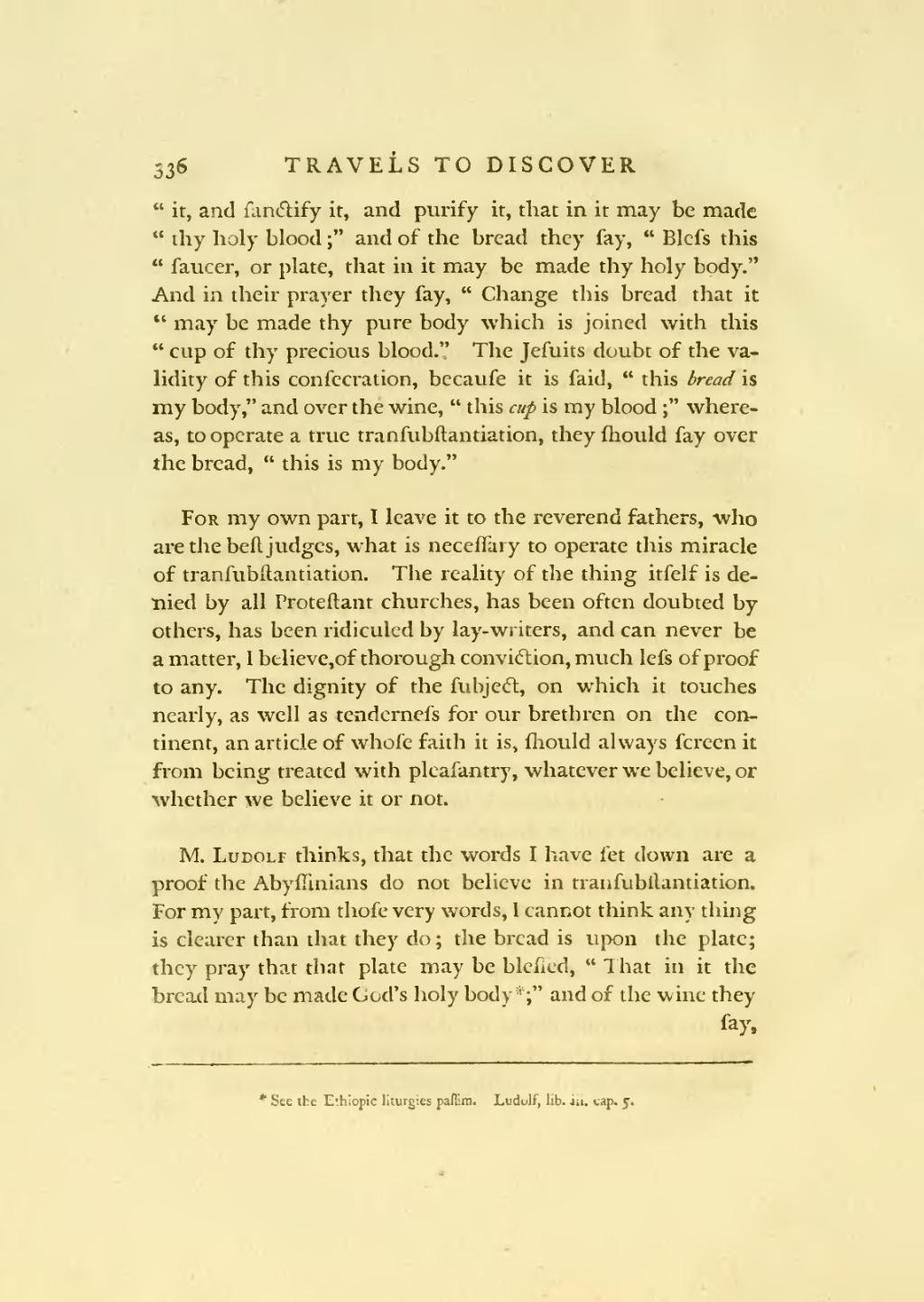it, and sanctify it, and purify it, that in it may be made thy holy blood;" and of the bread they say, "Bless this saucer, or plate, that in it may be made thy holy body." And in their prayer they say, "Change this bread that it may be made thy pure body which is joined with this cup of thy precious blood." The Jesuits doubt of the validity of this consecration, because it is said, "this bread is my body," and over the wine, "this cup is my blood;" whereas, to operate a true transubstantiation, they should say over the bread, "this is my body."
For my own part, I leave it to the reverend fathers, who are the best judges, what is necessary to operate this miracle of transubstantiation. The reality of the thing itself is denied by all Protestant churches, has been often doubted by others, has been ridiculed by lay-writers, and can never be a matter, I believe, of thorough conviction, much less of proof to any. The dignity of the subject, on which it touches nearly, as well as tenderness for our brethren on the continent, an article of whose faith it is, should always screen it from being treated with pleasantry, whatever we believe, or whether we believe it or not.
M. Ludolf thinks, that the words I have set down are a proof the Abyssinians do not believe in transubstantiation. For my part, from those very words, I cannot think any thing is clearer than that they do; the bread is upon the plate; they pray that that plate may be blessed, "That in it the bread may be made God's holy body[1];" and of the wine theysay,
- ↑ See the Ethiopic liturgies passim. Ludolf, lib. iii. cap. 5.
